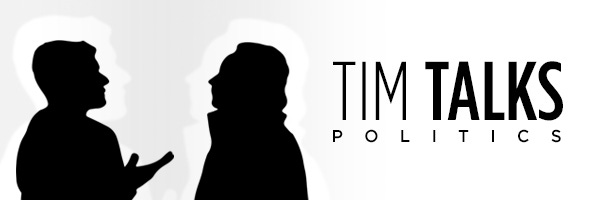Tim Talks Politics - The Weekly Brief, July 26, 2019

The Weekly Brief - July 26, 2019
Mueller… again
I’ve already commented on Facebook that the coverage of the Mueller testimony in the House this week is largely trivial and helpful. So, if you’d like to check out Mueller’s opening statement, I’ve included it here. Otherwise, onward to greater things!
Democrat love fest is over?
So that apparently unifying moment between Speaker Pelosi and the “squad” in the face of the President’s reprehensible tweets? Seems to have been short lived.
OK, that’s all the follow ups to last week’s Brief. Here’s the new stuff:
Boris, Brexit and Iran (couldn’t complete the alliteration)
In a widely anticipated outcome, Boris Johnson will be the new Tory leader in the British Parliament and take over at 10 Downing Street. While many were quick to parallel the former London mayor’s hair and populist(ish) flair to President Trump, AEI notes some substantive differences between the two leaders. In many ways, Johnson doesn’t seem to be a particularly incendiary character, though he plans to push through final Brexit plans by October 31, and his first day in office included a major cabinet shakeup.
On the foreign policy front, Johnson may shake things up a bit for Britain’s role in the world as well. And that may bode ill for Iran. Having harassed British tankers this week, Iran must now deal with a European flotilla being organized by Britain to secure the Strait of Hormuz in addition to the already present American navy. Perhaps such developments are influencing Iran’s apparent willingness to reopen negotiations with the US.
Puerto Rico
Ricardo Rossello, former Governor of Puerto Rico, stepped down this week in the face of massive street protests demanding his resignation. In a historical first for the island, the Governor left office in the wake of a scandal involving highly offensive and bigoted text messages that had gotten leaked.
Single party government emerges in Ukraine
Recently sworn in Ukrainian President Zelensky received a major boost with parliamentary elections giving his party an absolute majority. The clear mandate will give Zelensky plenty of room to maneuver in his efforts to clean up government corruption and work towards a peace with Russia. Those are all good things, but Brookings also raises some questions about the future direction of Zelensky’s presidency.
Antitrust and Big Tech
The terrible, horrible, no good, very bad week for Big Tech seems to be picking up steam as Facebook first got hit with a $5 billion dollar fine (which their last quarter profits more than made up for), then the Department of Justice announced the start of an antitrust probe that is likely believed to be targeting Facebook, Google and Amazon. This will likely be a years long process, but it does signal that a major shift has occurred in Washington’s relationship with Silicon Valley.
North Africa chaos
The countries of North Africa are having a rough summer and it’s not just due to the Saharan heat.
The President of Tunisia has died, creating a power vacuum in the still fragile democracy
The skyrocketing cost of living in post-revolution Sudan is increasing tensions and risks
Libya’s civil war continues to unfold with fresh fighting
Algeria remains mired in protests with no new date for a new presidential election after the July 4 election was indefinitely postponed
A bipartisan budget deal
In a rare show of bipartisan cooperation between the President at Congressional Democrats, a two year budget deal was announced this week. It is expected that Trump will sign the deal once it gets voted on in Congress. Key to that deal is a suspension of the debt ceiling through 2021, which the House approved today. National Review states that this massive increase in federal borrowing is the death knell of the Tea Party and ushers in a renewed era of bipartisan overspending.
Interestingly (and perhaps comforting...ly?), the deal was met with bipartisan criticism. conservative attacks from budget hawks like Senator Paul Rand are probably not a surprise, but negative reactions from some Democratic lawmakers and strategists seem surprising.
Overall, though, the reaction to the budget deal seems muted and Brookings argues that’s because it’s largely an extension of the status quo with all its perks and flaws.
Mr. Khan comes to Washington
Withe domestic politics dominating the news cycles this week, a state visit from Pakistan’s PM Imran Khan went largely unnoticed in the general media. While it seems to have been a positive visit at the personality level of the two leaders, the Council on Foreign Relations suggests that Trump doesn’t have a strong grasp on relevant issues that shape the relationship with Islamabad.
Long War Journal argues that Pakistan is a poisoned chalice when it comes to addressing Afghanistan. And, despite the long relationship between the two countries, AEI argues that Khan’s government is not one that can be trusted as a reliable partner.
So, despite the generally positive atmosphere, there doesn’t seem to be much optimism on future progress between the two countries.
On the horizon
A few news stories that will likely get more attention in the coming weeks:
A bipartisan Social Security 2100 Act is making its way through Congress
US troops are once again being stationed in Saudi Arabia after a 16-year absence
In addition to its move on Big Tech, the Department of Justice has also reinstated the death penalty



